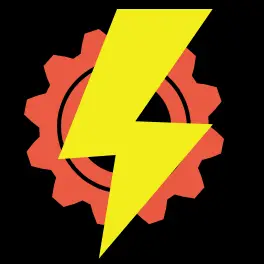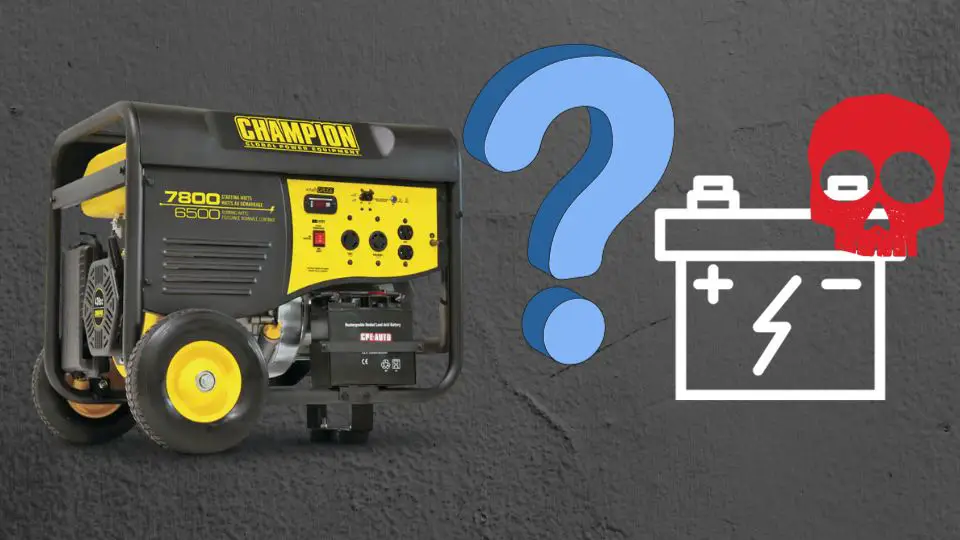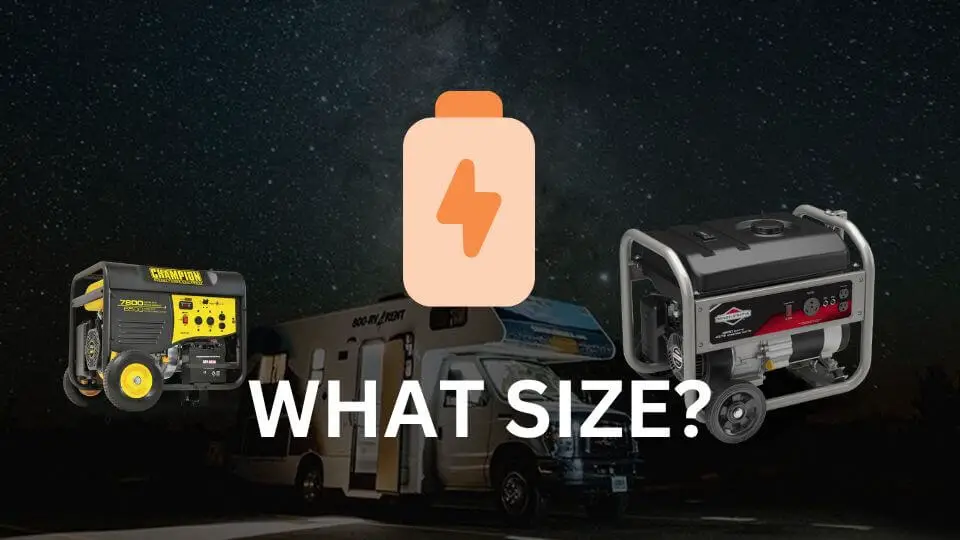This post may contain affiliate links. As an affiliate, we earn from qualifying purchases. We get commissions for purchases made through links in this post.
Generators are essential equipment for power outages, camping trips, and outdoor events. They are reliable sources of electricity that can power appliances and tools. However, when a generator’s battery dies, it raises the question of whether the generator will still run. Can a generator run with a dead battery?
The answer to that question depends on the type of generator. Most generators will start with a dead or disconnected battery using a recoil or manual start. This manual starter is enough to make the generator run, and it will run similarly to when started with an electric starter. However, some generators that are propane only or dual-fuel may not start on propane without a charged battery connected. Gas portable generators, on the other hand, will always start with a recoil starter.
Can a Generator Run With a Dead Battery?
Generators are an essential tool for providing backup power during outages. However, if the battery of a generator is dead, it might not start. The question is, can a generator run with a dead battery? The answer is that it depends on the type of generator.
Some generators are designed to charge their own battery, while others are not. Generators that are designed to charge their own battery typically have a built-in charging system that can charge the battery while the generator is running. If the battery is dead, the generator may still start if the charging system is working correctly.
On the other hand, if the generator is not designed to charge its own battery, it may not start if the battery is dead. In this case, the generator relies on the battery to provide the initial spark to start the engine. Without a functioning battery, the generator may not start.
However, there are ways to start a generator with a dead battery. One way is to use a portable battery jump starter. By using a jump starter, the battery can be bypassed, and the generator can be started directly. Another way is to use the pull start if the generator has one. This method involves pulling a cord that is attached to the engine to start it manually.
It is important to note that if a generator is not designed to charge its own battery, it is essential to keep the battery charged to ensure that the generator will start when needed. Batteries lose power over time, so it is important to charge them occasionally to keep them functioning correctly.
In conclusion, whether a generator can run with a dead battery depends on the type of generator. Generators that are designed to charge their own battery may still start even if the battery is dead, while generators that are not designed to charge their own battery may not start without a functioning battery. However, there are ways to start a generator with a dead battery, such as using a portable battery jump starter or the pull start if available.
Will a generator start without a battery?
Generators rely on a battery to start, but what happens if the battery is dead? Can a generator run without a battery? The answer is yes, but it depends on the type of generator.
Portable Generators
Portable generators are designed to be used in a variety of situations, including camping, tailgating, and emergencies. These generators typically have a pull-start mechanism that allows them to be started without a battery. However, if the generator has an electric start, it will not work without a battery.
Standby Generators
Standby generators are designed to provide backup power to a home or business during a power outage. These generators are typically connected to the electrical system of the building and require a battery to start. If the battery is dead, the generator will not start.
Starting a Generator Without a Battery
If you have a portable generator with a dead battery, you can still start it using a portable battery jump starter. This device provides the necessary power to start the generator, allowing you to use it during a power outage.
It’s important to note that batteries lose power over time, even when not in use. To prevent your generator battery from dying, it’s recommended to charge it occasionally. You can also use a battery maintainer to keep the battery charged and ready to use.
In summary, whether a generator will start without a battery depends on the type of generator. Portable generators can be started without a battery using a pull-start mechanism, while standby generators require a battery to start. If you have a portable generator with a dead battery, you can still start it using a portable battery jump starter.
Implications of Running a Generator With a Dead Battery
Running a generator with a dead battery may seem like a quick fix, but it can have serious implications. Here are a few things to consider before attempting to run a generator with a dead battery:
- Fuel type: Some generators require a working battery to switch between fuel types. Without a functioning battery, the generator may not be able to switch to the desired fuel source, which can cause issues when trying to start the generator.
- Starting mechanism: If the generator relies on an electric starter, a dead battery will prevent the generator from starting. However, if the generator has a pull-start mechanism, it may still be possible to start the generator without a working battery.
- Battery charging: Running a generator with a dead battery means the battery will not be charged. This can lead to a vicious cycle where the generator cannot start without a working battery, but the battery cannot be charged without the generator running.
- Battery damage: Attempting to start a generator with a dead battery can cause damage to the battery. The battery may become completely drained, which can lead to permanent damage and the need for replacement.
- Electrical load: A dead battery can cause the generator to work harder to produce electricity, which can lead to an excessive electrical load. This can cause damage to the generator and other connected devices.
In summary, running a generator with a dead battery can have significant implications. It is important to consider the fuel type, starting mechanism, battery charging, battery damage, and electrical load before attempting to start a generator with a dead battery.
Does a generator charge its own battery?
Generators can either charge their own battery or require an external power source to charge the battery. Generators that are designed to charge their own battery typically have a built-in charging system that can charge the battery while the generator is running. However, not all generators are designed to charge their own battery.
According to the search results, Generac’s two GP models, namely 15000 and 17500, are the generators that can charge their own battery. Apart from that, all the electronics generators or devices from XP can also charge their batteries. Portable generators, on the other hand, usually require a trickle charger to be plugged into the main power.
It’s important to note that the charge of the battery depends on several parameters, such as how long the generator runs, how often it’s used, the amount of charge required to start, and the amount of charge stored while starting.
If the generator’s voltage regulator is damaged, it will prevent the battery from getting the charge it needs, causing the component to die. In this case, the battery drains at a much faster rate. Moreover, a faulty charger can also cause the generator’s battery to die.
In summary, whether or not a generator can charge its own battery depends on the model and design of the generator. It’s important to understand the parameters that affect the battery’s charge and to ensure that the generator’s voltage regulator and charger are functioning correctly.
Can I Use a Car Battery for a Generator?
Yes, a car battery can be used to start a generator. In fact, it is a common practice to use a car battery as a backup power source for a generator. The car battery’s power can start the generator without any problem.
Before starting the generator using a car battery, you must ensure that you use a 12v battery or any other possible automotive utility battery. This is because most generators require a 12v battery to start. You should also ensure that the battery is fully charged before using it to start the generator.
To use a car battery to start a generator, you need to connect the positive and negative terminals of the battery to the corresponding terminals on the generator. Once the battery is connected, you can turn on the generator and it should start without any issue.
It is important to note that using a car battery to start a generator should only be done in an emergency situation. Using a car battery as a primary power source for a generator is not recommended as it can drain the battery quickly and damage the battery over time.
In conclusion, a car battery can be used to start a generator, but it should only be used as a backup power source in an emergency situation. It is important to ensure that the battery is fully charged before using it to start the generator.
Maintenance Tips for Generator Batteries
Generator batteries are essential components that keep generators running smoothly. A dead battery can cause a generator to malfunction, which can be frustrating and costly. To prevent this from happening, it is important to maintain generator batteries properly. Here are some maintenance tips that can help prolong the life of generator batteries:
1. Charge the Battery Regularly
Generator batteries need to be charged regularly to maintain their charge level. It is recommended to charge the battery every three months. If the battery has been sitting unused for a long time, it is best to charge it before use.
2. Check the Voltage Regularly
Checking the voltage of the battery regularly can help detect any issues with the battery before they become major problems. A digital voltmeter can be used to check the voltage of the battery. If the voltage is 12.4 volts or less, the battery needs to be charged.
3. Keep the Battery Clean
Dirt and debris can accumulate on the battery over time, which can affect its performance. Keeping the battery clean can help prevent this. A damp cloth can be used to wipe down the battery and remove any dirt or debris.
4. Check the Charger
The charger is responsible for providing power to the battery. If the charger is faulty, the battery may not receive the power it needs, which can cause it to die. It is important to check the charger regularly to ensure it is working properly.
5. Replace the Battery When Necessary
Generator batteries have a limited lifespan. It is important to replace the battery when it is no longer able to hold a charge or is not performing as it should.
By following these maintenance tips, generator owners can ensure their batteries remain in good condition and their generators run smoothly.
Conclusion
In summary, a generator can run with a dead battery, but it depends on the type of generator. Some generators can still run with a dead battery, while others require a working battery to start and run.
If the generator has an electric start, it will not start without a working battery. In this case, it is important to keep the battery charged and maintained to ensure the generator is always ready to go when needed.
On the other hand, if the generator has a recoil start, it can still be started manually without a working battery. However, it may require more effort and may not be as convenient as an electric start.
It is important to note that a dead battery can be caused by various factors such as a defective voltage regulator or simply from sitting idle for too long. Therefore, it is important to regularly check and maintain the battery to ensure it is in proper working order.
In conclusion, it is recommended to keep the generator battery charged and maintained to ensure the generator is always ready to go when needed. However, if the battery is dead, some generators can still be started and run manually with a recoil start.



